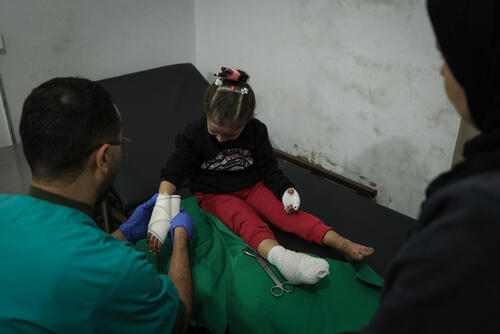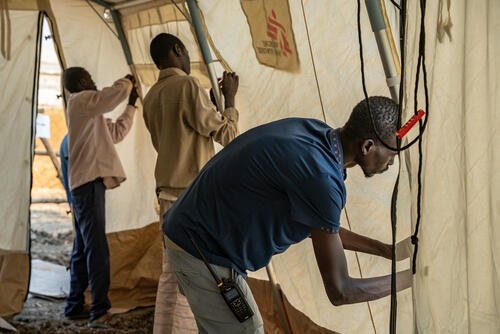MSF's intervention came about almost unexpectedly. What happened?
In December, an MSF team was headed to Mindanao Island to assess emergency health needs in the Cotabato, Maguidanao and Davao areas, where there has been armed conflict for several years. However on December 16, during the assessment, a typhoon struck Mindanao, causing many deaths and widespread damage on another part of the island. The team halted its evaluation mission and went to the flooded areas.
A month earlier, another MSF team had arrived in Bulacan province, north of Manila, after a typhoon hit there. Team members had carried out medical consultations, provided water and distributed non- items to the affected people. Natural disasters are frequent in the Philippines. Some thirty typhoons of varying severity strike every year, often causing significant damage.
What are the needs in the region devastated by the typhoon in Mindanao?
The rivers overflowed their banks and flooded entire villages and neighbourhoods. The towns of Cagayan de Oro and Iligan were the most affected. The water and mud carried off and destroyed houses. Many people fled and took shelter in evacuation centres that had been set up by the authorities in schools or barangay halls; public buildings that house important meetings for people in the area. The needs in these centres are comparable to what are generally seen in refugee camps. Several international NGOs arrived right away to provide aid, deliver basic supplies and food and build latrines. But MSF is the only one able to provide healthcare in cooperation with the Ministry of Health.
What is MSF doing specifically?
The MSF team will take over from the Ministry of Health staff members who had been sent out just after the typhoon hit and must return to their regular workplaces. To start, the team is training local staff to carry out medical consultations at the sites housing the victims from Cagayan de Oro (21,000 people are staying in 22 centres) and Iligan (14,000 in 20 centres).
We have already identified the main medical issues, which are watery diarrhoea and respiratory infections. However, we have also detected suspected cases of leptospirosis and tetanus which will be closely monitored.
The team will also be monitoring the victims' living conditions and their situations. Tent camps have been set up to relieve the evacuation centres and, in particular, the schools, which must be available to the students, who will return soon.





